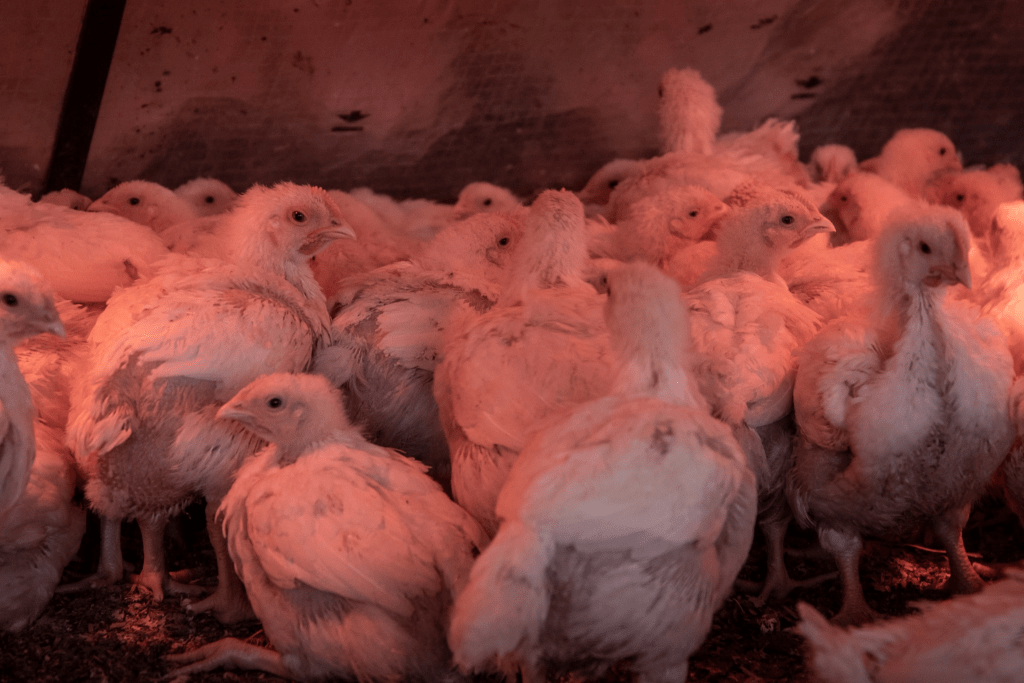Kosher companies and Jewish media are sounding an alarm that kosher chicken is in short supply in anticipation of Passover. This supply chain disruption underscores the need for change within kosher production, which is intrinsically linked to the rest of industrial animal agriculture in the United States.
Warnings about a kosher poultry shortage trace back to the beginning of the pandemic, when some feared an impending kosher meat shortage due to abrupt factory closures. Giant meat processing plants temporarily shuttered due to unrelenting COVID-19 outbreaks among workers, and Empire, the largest producer of kosher poultry in the country, was no exception. Mass killing—and wasting—of animals occurred as a result of facilities’ inability to slaughter and process at their usual breakneck pace during the shutdowns.
Now, in spring of 2022, the deadliest US bird flu outbreak since 2015 has claimed nearly 23 million birds, impacting the availability and cost of kosher poultry. This development is no surprise: over ninety-nine percent of poultry, including virtually all kosher birds, are uniformly bred with hybrid genetics that produce weak immune systems. Factory farms keep them crammed tightly in indoor cages and barns, creating a perfect breeding ground for pathogens.
Kosher slaughter methods don’t preclude kosher chickens—which come from the same hatcheries as non-kosher farms and are raised in identical extreme confinement to non-kosher birds—from posing the same public health threat as other factory farmed birds. While the CDC says this current influenza poses little threat to humans, that could change in an instant–and the likelihood of poultry farms producing zoonotic disease that can pass to people will only rise with time.
A kosher chicken shortage isn’t cause for panic, but a wake-up call to address problems that have been festering within the meat industry for decades. Some cultural shifts and calls to action in the Jewish world have already begun: from vibrant religious debate over new markets and technologies that make plant-based meat more accessible than ever, to rabbis and Jewish leaders who openly condemn most kosher production and want communities to avoid (kosher) factory-farmed meat wherever possible.
Whether it’s out of concern for public health, abuse toward workers, animal welfare, or environmental impact, it’s time to question the value of kosher chicken on our plates. Should a poultry shortage ensue this Passover season and beyond, let’s use it as an opportunity to think about whether factory farmed chicken belongs on our dinner tables.




